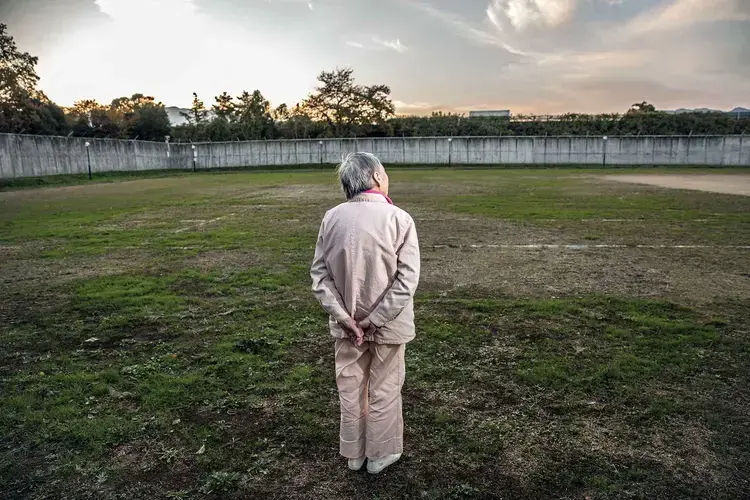INSIDE the walls of Tochigi Women’s Prison, elderly inmates shuffle down corridors, some using walkers, while prison staff assists them with daily activities such as bathing, eating, and taking medication.
The facility, Japan’s largest women’s prison, increasingly mirrors a nursing home, reflecting the aging population and pervasive loneliness in Japanese society.
Many inmates, such as 81-year-old Akiyo, see prison as a refuge from the struggles of poverty and isolation.
Akiyo, serving time for shoplifting food, described prison life as stable and supportive, offering regular meals, free healthcare, and companionship. “Perhaps this life is the most stable for me,” she said, speaking under a pseudonym for privacy.

For some elderly individuals, incarceration is a deliberate choice. Yoko, a 51-year-old inmate serving her fifth sentence for drug charges, noted that some intentionally commit crimes to secure food, shelter, and medical care.
“They do bad things on purpose to get caught,” she said.
A GROWING CRISIS
The rising number of elderly prisoners has significantly altered Japan’s prison system. Between 2003 and 2022, the number of inmates aged 65 or older nearly quadrupled.
Most elderly female inmates are jailed for theft, often driven by poverty or desperation. Japan has one of the highest elderly poverty rates among OECD countries, with 20% of those aged 65 and above living below the poverty line.
Prison guards like Takayoshi Shiranaga describe how the role of corrections staff has shifted to providing eldercare.
“We now have to change their diapers, help them bathe, and feed them,” Shiranaga said. “It feels more like a nursing home than a prison.”
Outside of prison, many former inmates struggle to reintegrate into society due to a lack of familial or social support.
Some face rejection from their families, while others have no home or resources to return to.
GOVERNMENT EFFORTS AND CHALLENGES
Japanese authorities have acknowledged the issue, implementing initiatives to reduce recidivism among elderly ex-prisoners.
The Ministry of Justice has introduced programs aimed at improving independent living, substance recovery, and familial relationships.
The welfare ministry has also expanded early intervention and community support centers.
In addition, some municipalities are testing housing benefits and other initiatives to assist elderly individuals with no close relatives.
However, the rapidly aging population poses ongoing challenges.
By 2040, Japan will need an estimated 2.72 million care workers to meet the demand, prompting the government to recruit more workers and encourage foreign labor.
Despite these efforts, prisons like Tochigi remain overwhelmed with elderly inmates. Some prisoners, like Yoko, even take on caregiving roles for fellow inmates due to staffing shortages.
A CYCLE OF SHAME AND ISOLATION
For many elderly inmates, shame and fear weigh heavily. Akiyo, who completed her sentence in October, expressed deep regret over her circumstances.

She planned to seek forgiveness from her son but feared his reaction. “Being alone is a very difficult thing,” she said. “I feel ashamed that I ended up in this situation. I wish I had led a different life.”
As Japan continues to grapple with an aging society and increasing isolation among its elderly population, the growing number of older inmates underscores the urgent need for systemic solutions to address loneliness, poverty, and support for vulnerable individuals.
